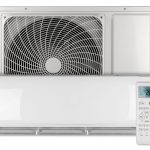
3 Ways to Help Your Air Conditioner Work More Efficiently
Even with the best of intentions and the hackiest of hacks, surviving a summer with no air conditioning in the home might be a failing proposition any way you slice it – and a potentially dangerous one for families with young children or senior adults.
Air conditioning is a must for survival through the height of summertime heat. Fortunately, there are plenty of ways to help your home’s air conditioning system work more efficiently this summer. If the goal is to do everything you can to decrease the heat inside your home before you flip on the a/c, there are three general areas to focus on.
Keep the Heat Out: Window Treatments
Interior window treatments, especially on south- and west-facing windows, can go a long way in cutting down the sun’s heat from radiating inside your home on hot summer days.
Ordinary draperies will help, but blackout draperies or shades work best and are available from local design shops that sell window treatments, as well as from big box stores and numerous online retailers.
Another type of window treatment is virtually invisible: reflective window film. Installing these films, which are available at home improvement stores, can help reduce heat and glare, and with frosted or decorative patterns, can add a measure of privacy.
For the exterior of your home, canvas or aluminum awnings can add a decorative flare as well as deflect direct sunlight and heat away from the inside of your home.
A more heavy-duty measure against direct sunlight and heat are hurricane shutters, which have value beyond hurricane-prone coastal areas. In addition to providing protection against hurricane-force winds and flying debris, they guard against forced entry and absorb the sun’s rays, keeping windows and the interior of your home much cooler.
A final window treatment is weather stripping, which helps to tighten or strengthen the seal around windows and doors to keep outside air out and inside air in. The easiest to install is the “v-seal” type.
Moving beyond “things to attach to your home that come from a factory,” the shade tree is a great alternative for cutting down the sun’s heat. Just remember to research the eventual size and soil requirements of your shade trees so that you don’t plant them too close to your home or in an especially damp area where they would not thrive. According to Southern Living, five fast-growing shade trees are the Red Maple, the “Allee” Chinese Elm, the Nuttall Oak, the Chinese Pistache and the Japanese Zelkova.
Cut the Heat Inside: Appliances
A hot shower and a hot meal would be two parts of anyone’s definition of a relaxing evening at home, but in the heat of summer, they might add equal parts misery.
The appliances that generate the most heat in the home are ranges and ovens, and to a lesser extent, clothes dryers. As a work-around, dryers can be run in the early morning, late at night or not at all in the summer months if you have a place to hang your laundry out to dry. Ranges and ovens have to be used in the evenings to prepare evening meals, but alternatives to cooking hot meals without cooking your kitchen include slow cookers and crock pots or outdoor grilling.
To remove hot, humid air from a bathroom and hot air from your kitchen, don’t forget to run bathroom and kitchen vent fans at least until the bathroom mirrors defog and your food is finished baking.
Finally, just like some appliances in the home, incandescent light bulbs emit heat. For a cooler home that’s just as bright, switch to cooler compact fluorescent and LED bulbs.
Begin to Cool Inside: Fans
Now that you’ve done all you can to keep as much heat as possible from entering your home through and around windows, and you’ve minimized the heat produced by appliances in your home, you can focus on cooling the air inside your home.
During the summer, you should set your ceiling fans to rotate counterclockwise so that they push cool air down. When used in conjunction with air conditioning, they allow thermostats to be set 4 degrees above where they otherwise would be set with no reduction in comfort, according to Energy.gov.
Portable fans add the same boost when used in conjunction with air conditioning, and as the name implies, you can place them wherever they are most needed in your home. You can even fill a mixing bowl with ice or an ice pack and place it in front of the fan to add some extra chill to the air.
Heat and humidity are the one-two punch of summer misery. But you can knock out both with fans and/or air conditioning and a dehumidifier. Reducing humidity not only makes the home more pleasant, but also cuts down on mold, mildew and allergens.
When you decide that it is time to turn on the air conditioning this summer, and if you take advantage of any one of the tips above, you can do so with confidence knowing that you’ve made a positive effort to give your air conditioner a head start against the summer heat.
For other tips on how to make your air conditioning system work more efficiently, please give Barineau Heating and Air a call at (850) 580-4029.




